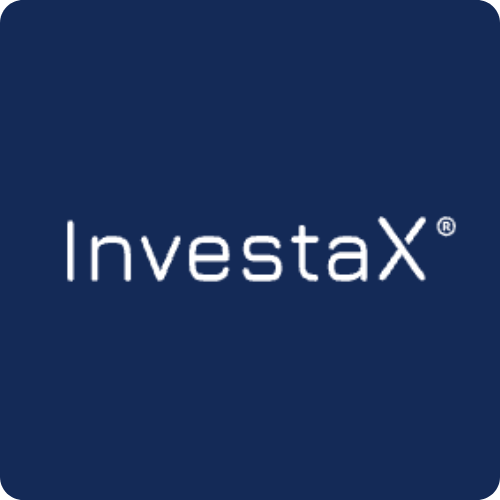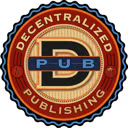
IBM Blockchain Platform
The IBM Blockchain Platform was a short-term funding and technology project involving the Hedera blockchain network. While this specific project has evolved into an ongoing enterprise blockchain strategy, IBM remains intrinsically involved with the Hedera network as a member of the Hedera Governing Council.
This position provides IBM with a direct voice and vote in the governance of the Hedera public network, influencing its technical roadmap, policies, and overall strategic direction. As a council member, IBM also contributes to the network's operational integrity by running a consensus node.
This engagement with Hedera allows IBM to participate, offer insights and contribute to advancements which align with its broader interests in advancing enterprise-grade distributed ledger solutions (DLT). This involvement complements IBM's extensive work with permissioned blockchains and strengthens the partnership between Hedera and the broader technology industry while providing a holistic perspective on the evolving blockchain landscape for IBM’s global enterprise clients.
Project Information
Related Projects

InvestaX is a Singapore-based, licensed security token platform Its mission is to provide a comprehensive, end-to-end solution for the issuance, trading, and custody of security tokens, bridging the gap between traditional finance and the world of decentralized assets.
The company offers a full suite of services for the digital asset lifecycle including tokenization. The InvestaX platform also features a primary issuance service for launching new security token offerings (STOs), as well as a secondary trading marketplace for providing liquidity to these assets. A core component of their offering is their institutional-grade custody solution, which ensures the secure storage of digital assets.
While InvestaX is a multi-chain platform, it has a direct integration with the Hedera network. The company utilizes Hedera's high-throughput and low-cost infrastructure to provide its clients with a fast, secure, and efficient platform for tokenizing and managing their assets. Through this integration, InvestaX offers a scalable and enterprise-grade solution for the digital asset market, enabling accessibility and liquidity for a wide range of real-world assets.

Certara is a global leader in biosimulation, a technology that uses computer models to predict how drugs will behave in the human body. Founded in 2008 and headquartered in Princeton, New Jersey, its mission is to accelerate the development of new medicines by transforming the traditional drug discovery and development process.
The company offers a comprehensive suite of software and services that are used by over 2,000 biopharmaceutical companies, academic institutions, and regulatory agencies in 62 countries. Certara's Simcyp Simulator, for example, is a physiologically-based pharmacokinetic (PBPK) modeling platform that is widely used to predict drug interactions. In addition to its software, Certara provides a range of consulting services, including regulatory science, market access, and medical writing.
Certara's OpenPharma innovation has developed a decentralized application called Hasharc that is built on the Hedera network and designed to address key challenges in the life sciences industry, such as supply chain security, patient safety, and regulatory compliance.

DPUB is a decentralised publishing platform that aims to simplify the process of creating and distributing content on the Hedera network. It’s designed to empower creators by providing them with the tools to launch NFTs, create token-gated communities, and manage crowdfunding campaigns and DAOs.
The core of DPUB's service is a user-friendly, no-code platform that allows creators to mint their work as NFTs and build communities around their content. Its features include decentralised auctions and a secondary marketplace, which provide creators with new avenues for monetization and passive income through royalties.
DPUB is built on Hedera and utilises the Hedera Token Service (HTS) for minting and managing all NFTs and other digital assets on the platform as well as the Hedera Consensus Service (HCS) to ensure the fair bidding. By leveraging Hedera's high throughput, low fees, and robust security, DPUB offers a scalable and efficient solution for decentralised publishing and creator monetisation.

Coinomi is a multi-asset cryptocurrency wallet launched in 2014, making it one of the oldest multi-chain wallets available. It offers a non-custodial solution giving users full control over their private keys. Coinomi is designed to support a multitude of digital assets including over 1,770 cryptocurrencies and tokens across more than 125 blockchains, including major names like Bitcoin, Ethereum, and Solana, as well as numerous altcoins and tokens.
It is available on both mobile (iOS and Android) and desktop (Windows, macOS, Linux) platforms. Key security features include strong wallet encryption with hierarchical deterministic (HD) backups featuring BIP44 algorithmic security. For privacy, Coinomi eschews know-your-customer requirements for accessing funds and records no IP associations, identity linking, or transaction tracking. Furthermore, its servers anonymize user requests by default.
The Coinomi wallet integrates built-in cryptocurrency exchange services through partnerships with platforms including Changelly and ShapeShift, allowing users to swap between different assets directly within the app. It also supports SegWit for Bitcoin and other compatible coins, enabling faster confirmations and lower transaction fees. Its services are free to use (users only pay standard network transaction fees to miners).
